java的fail-fast与fail-safe以及ConcurrentModificationException
在 java 的集合工具类中,例如对?ArrayList 或者 HashSet 进行删除元素后再遍历元素时,会抛出?ConcurrentModificationException 异常。
fail-fast
ArrayList
public class TestList {
public static void main(String[] args) {
ArrayList<Integer> list = new ArrayList<>();
list.add(1);
list.add(3);
list.add(2);
for (Integer num:list) {
if(num==1){
list.remove(num);
}
}
}
}
执行完代码之后报错?ConcurrentModificationException
Exception in thread "main" java.util.ConcurrentModificationException
at java.util.ArrayList$Itr.checkForComodification(ArrayList.java:911)
at java.util.ArrayList$Itr.next(ArrayList.java:861)接下来看看怎么回事
看一下编译后的字节码
javap -verbose TestList
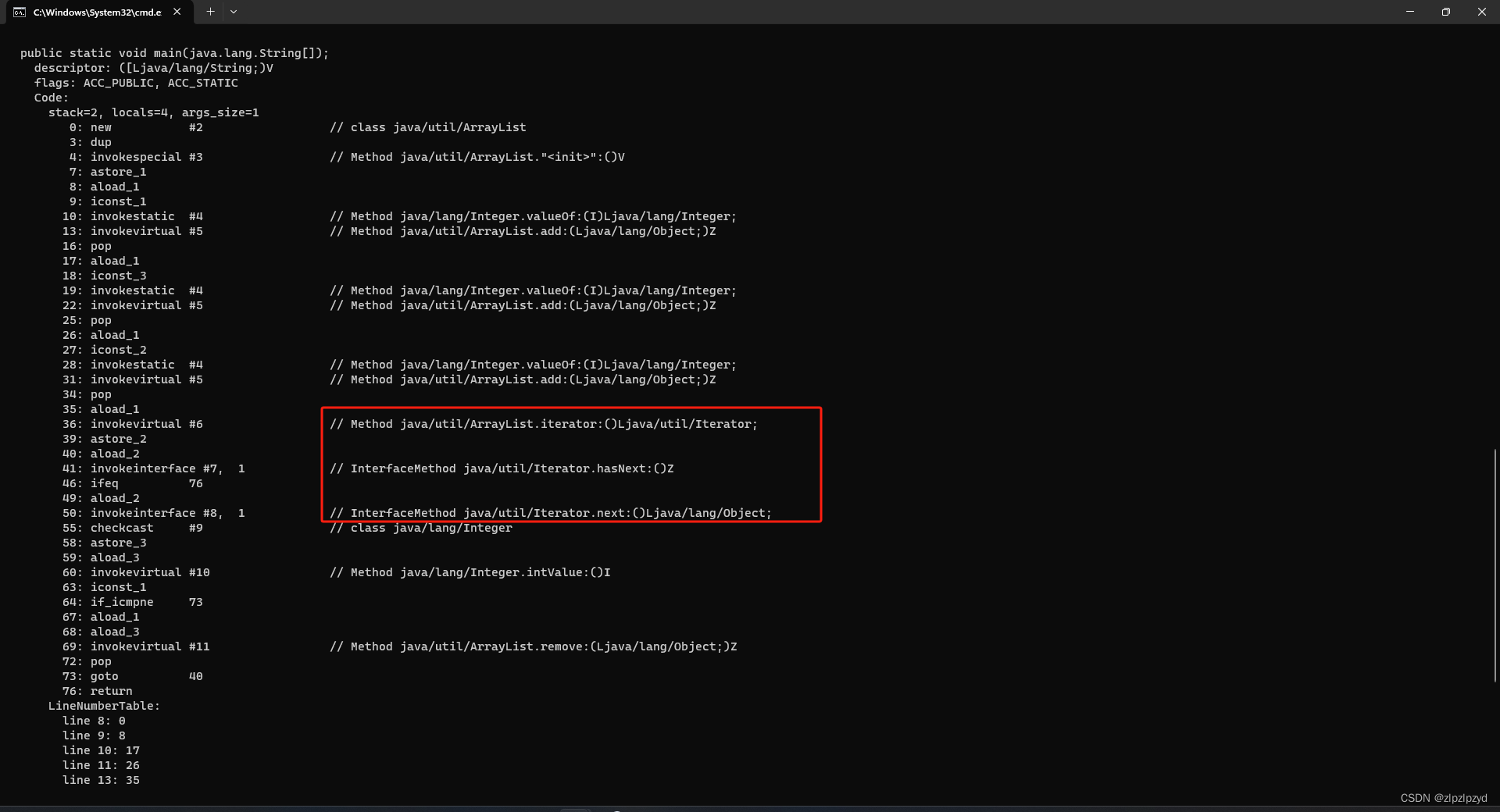
将字节码反编译后可以看到 foreach 循环最终通过调用?ArrayList#iterator() 获取 Iterator 实现循环处理的。
通过源码可以发现,iterator() 返回的是一个实现了接口?Iterator 的内部类 Itr,通过其中的方法来实现遍历操作。
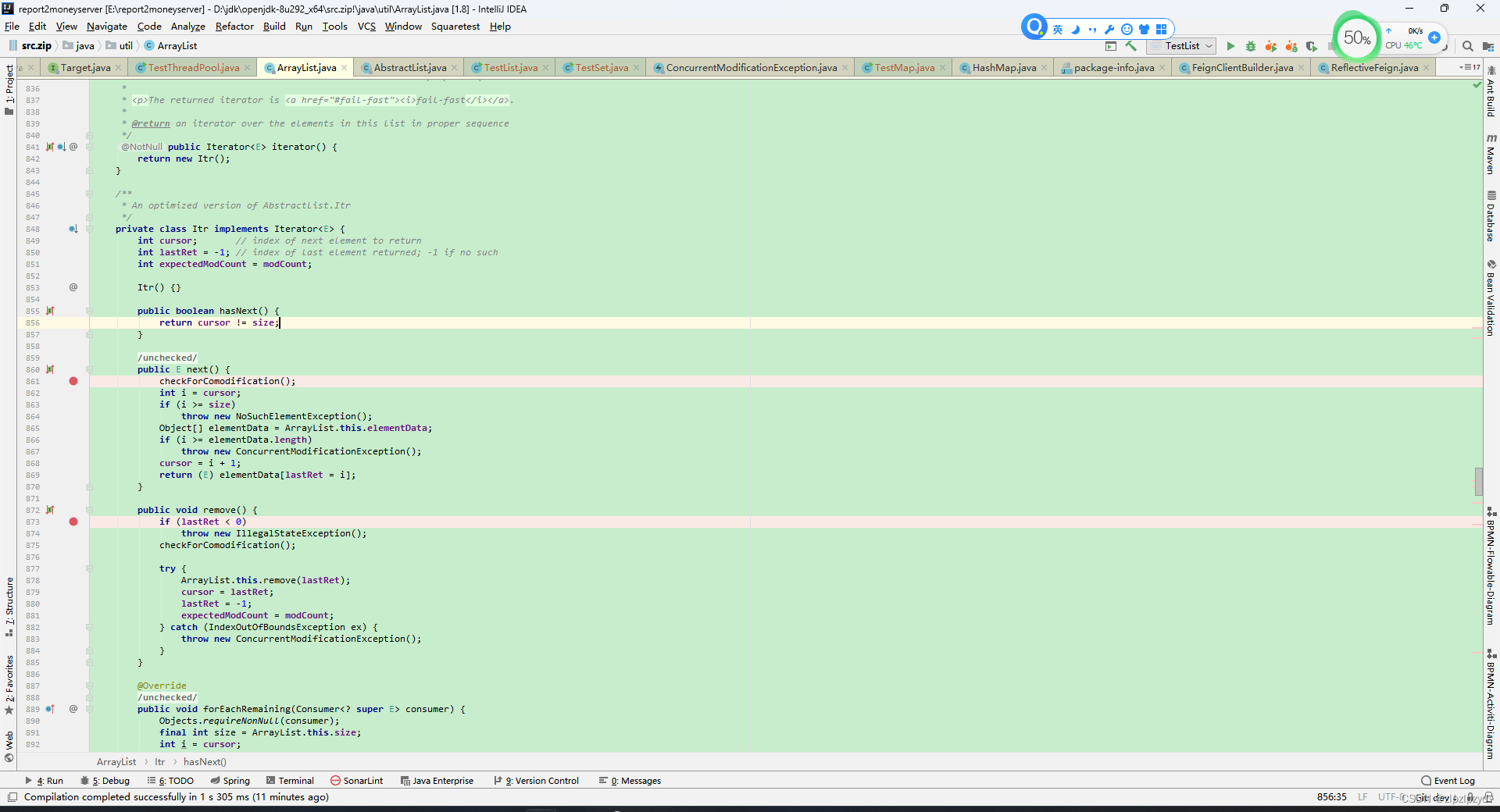
然而报错的原因是因为?modCount != expectedModCount
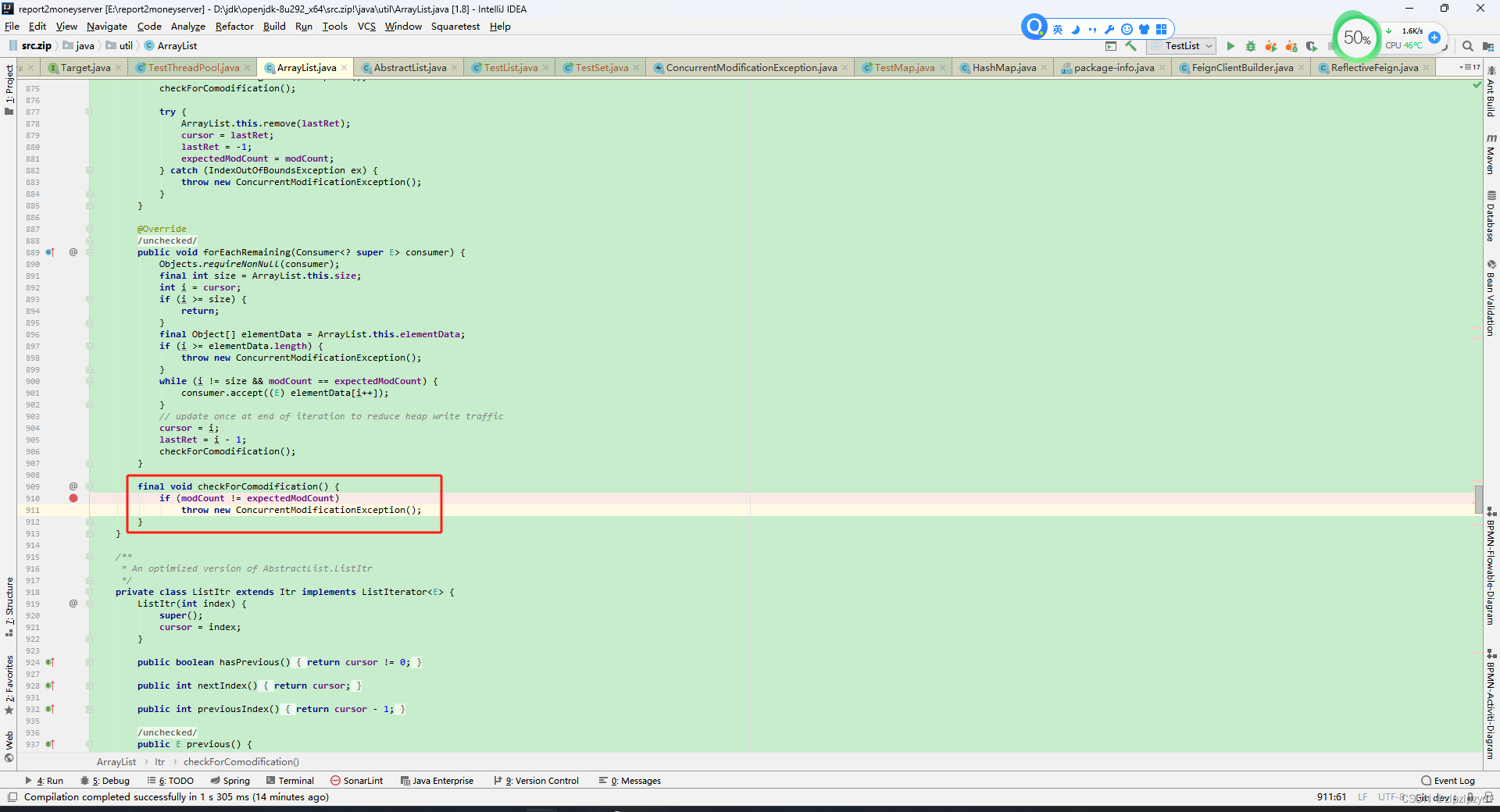
在上面的代码中可以看到,在循环遍历的时候会生成一个 Itr 类,将?modCount 赋值给?expectedModCount,然而?modCount 在?AbstractList 中定义。通过注释得知,modCount 用于进行?fail-fast 处理,针对子类可以针对此变量值进行修改。
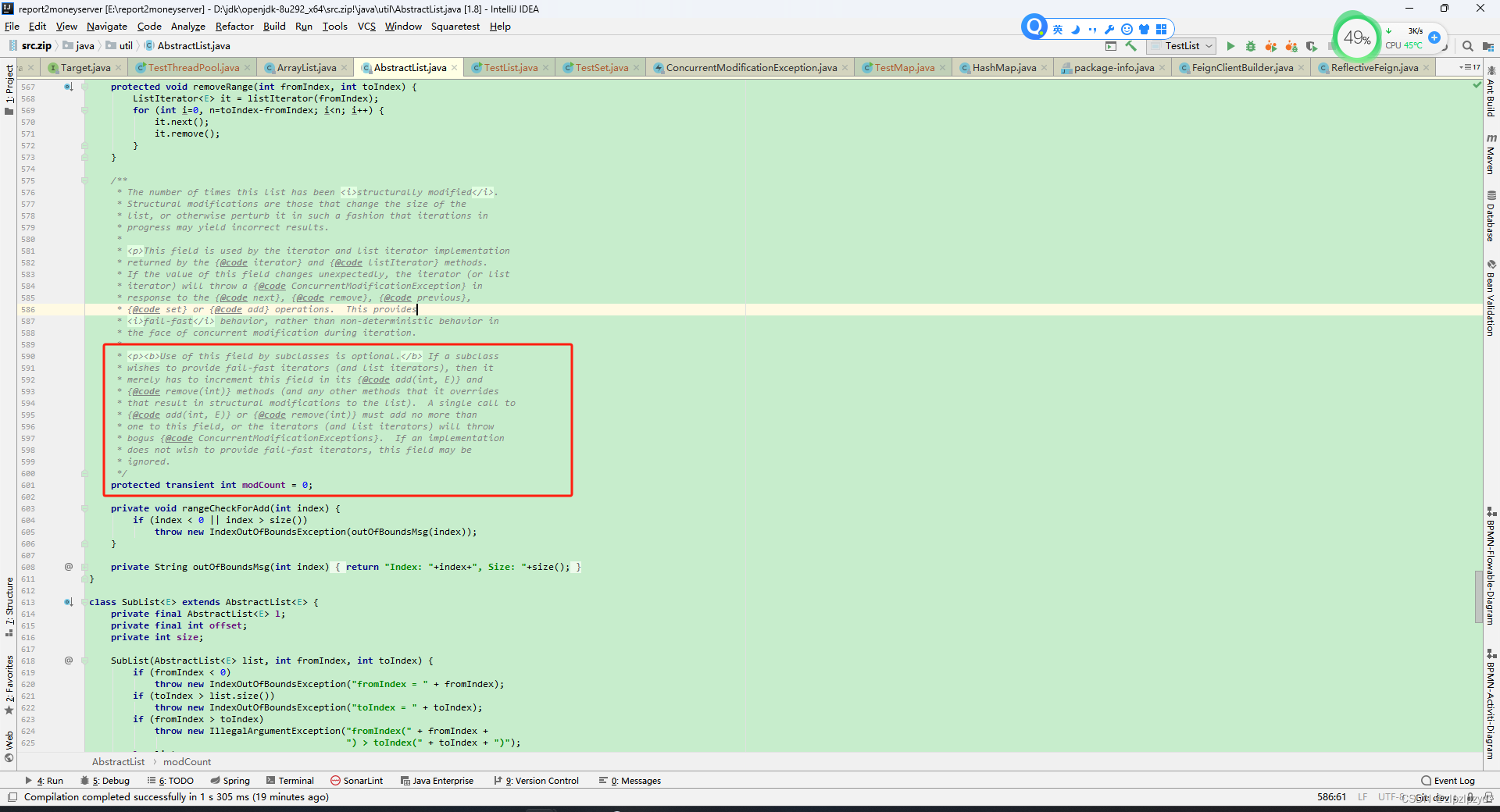
在调用?ArrayList#add() 时,会针对?modCount 进行累加操作。
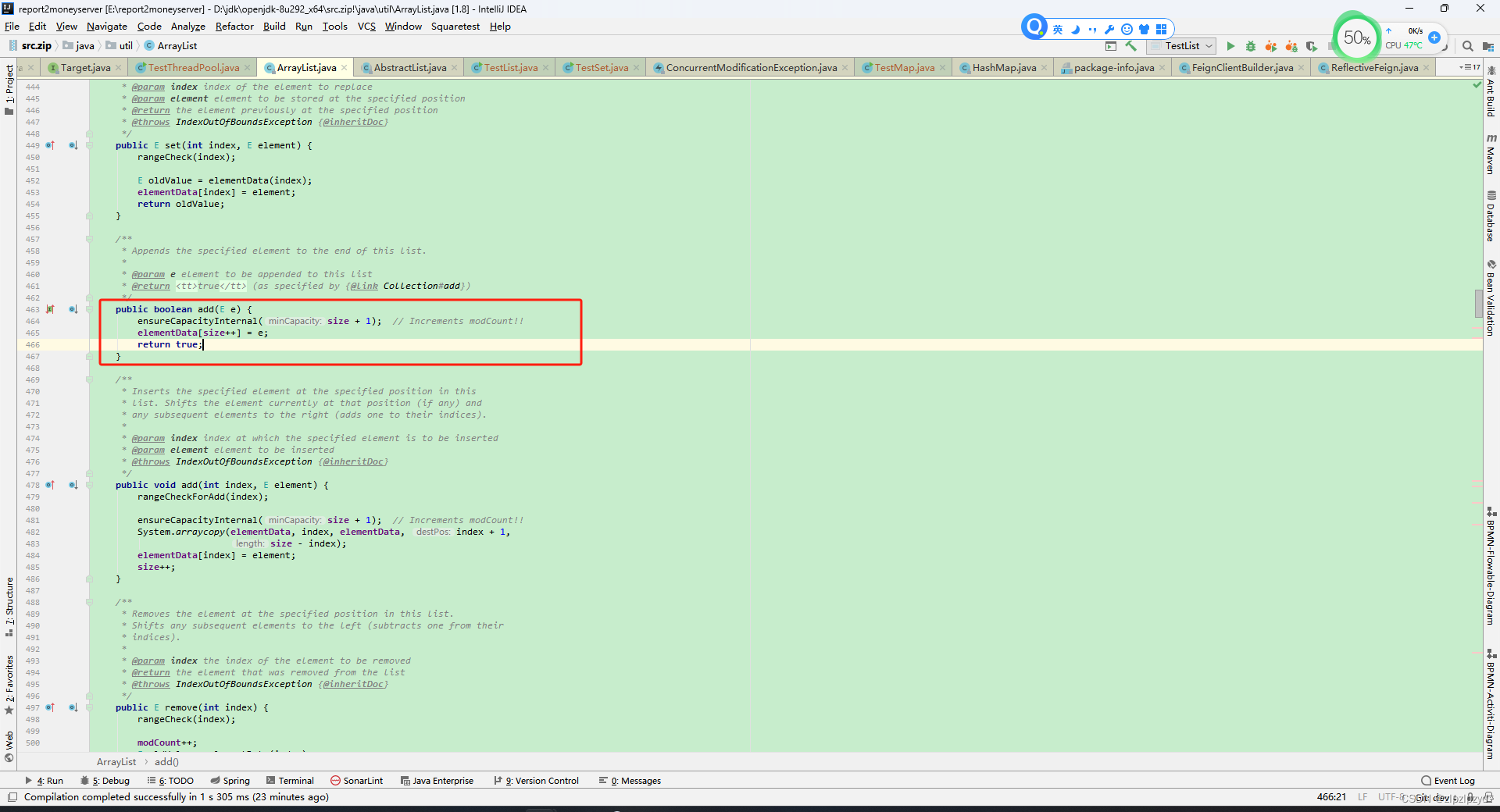
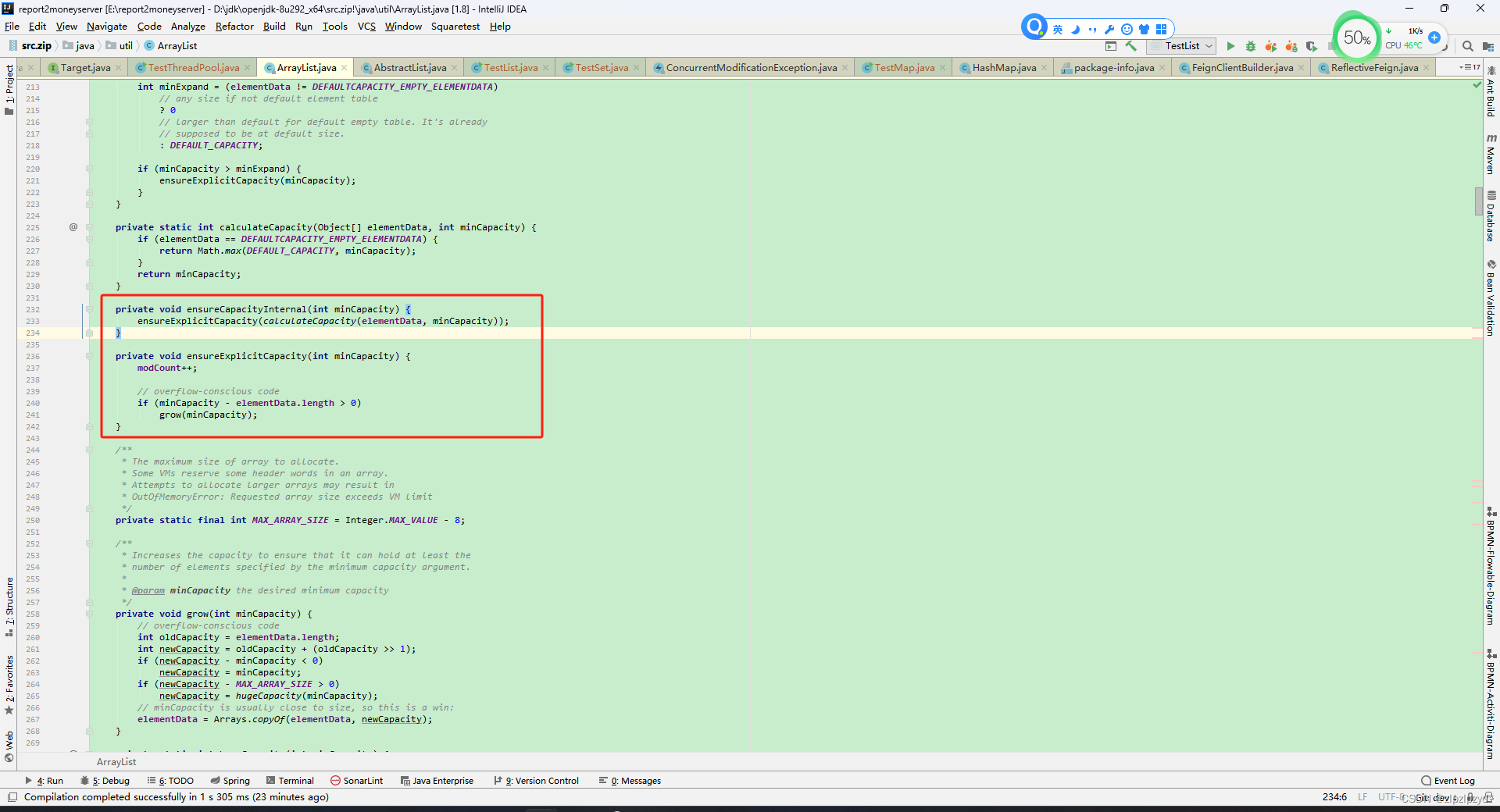
在调用?ArrayList#remove() 时,同样会进行累加操作。
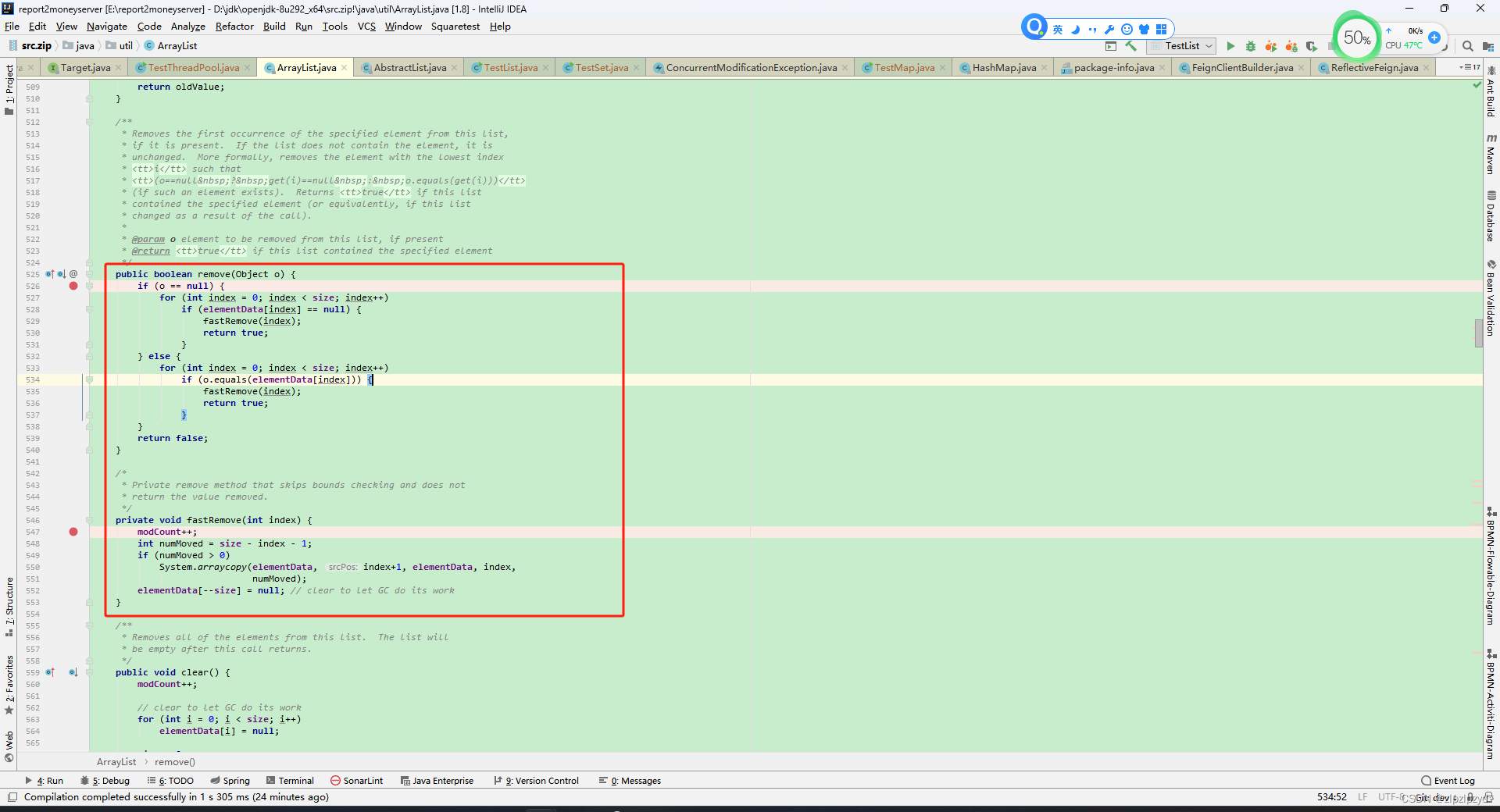
在循环遍历的过程中,如果调用了?remove(),会调用?ArrayList#remove() 进行元素删除,继续遍历会执行?Iterator 的 hasNext() 和 next() 来遍历移除元素后的数据。但是这里的?remove() 没有调用内部类 Itr 的?remove(),所以在执行 next() 中调用?checkForComodification() 时两个变量值不一致,抛出了异常。
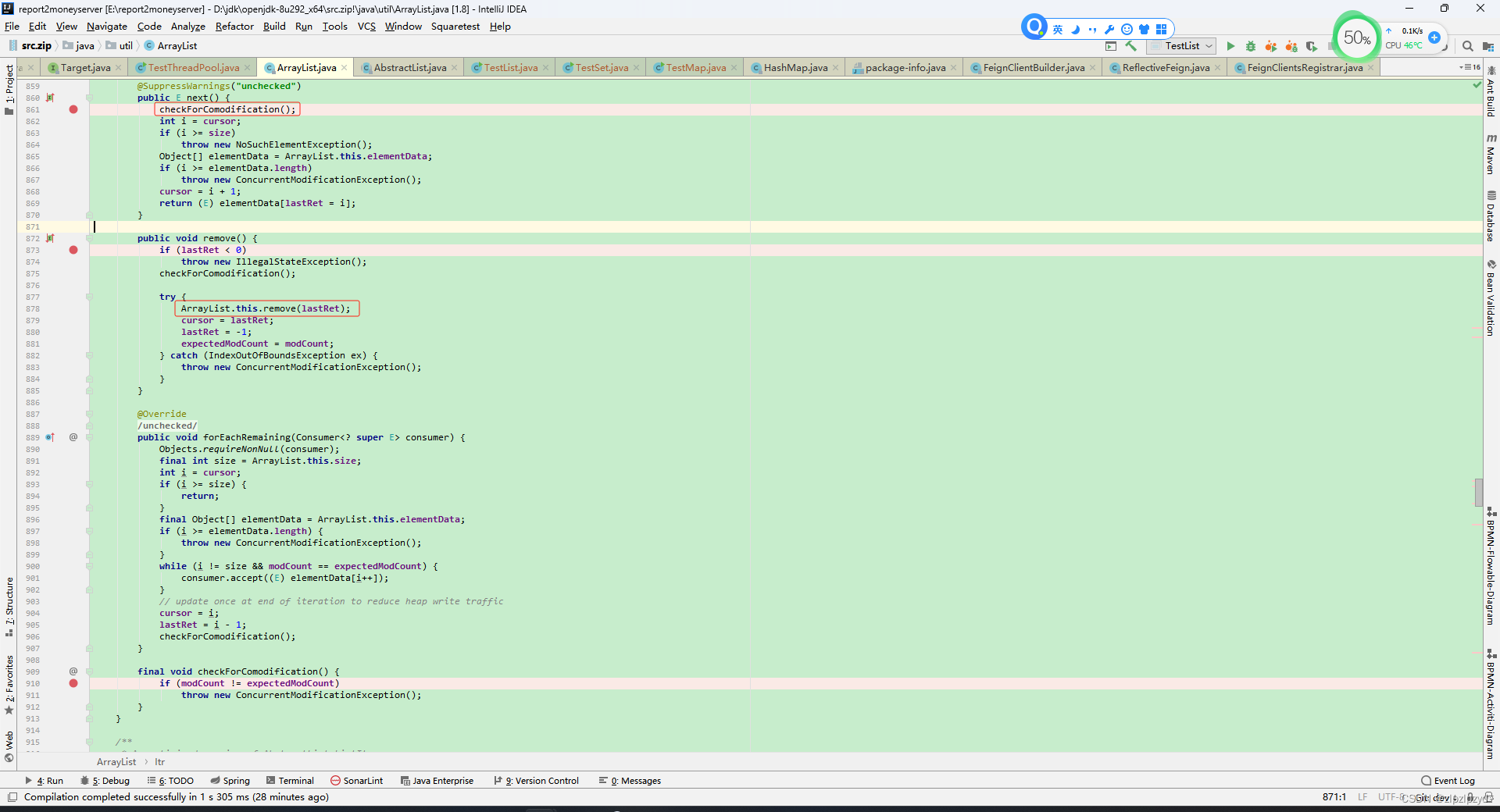
但是在?Itr#remove() 中会将?modCount 给?expectedModCount 赋值,所以,不会有值不一致的情况。
接下来修改代码如下
import java.util.ArrayList;
import java.util.Iterator;
public class TestList {
public static void main(String[] args) {
ArrayList<Integer> list = new ArrayList<>();
list.add(1);
list.add(3);
list.add(2);
/*for (Integer num:list) {
if(num==1){
list.remove(num);
}
}*/
Iterator<Integer> iterator = list.iterator();
while (iterator.hasNext()) {
Integer num = iterator.next();
if(num==1){
iterator.remove();
}
}
}
}
这样的话使用了内部类?Itr#remove() 进行移除,没有异常。
HashSet
import java.util.HashSet;
public class TestSet {
public static void main(String[] args) {
HashSet<Integer> list = new HashSet<>();
list.add(1);
list.add(3);
list.add(2);
for (Integer num:list) {
if(num==1){
list.remove(num);
}
}
}
}Exception in thread "main" java.util.ConcurrentModificationException
at java.util.HashMap$HashIterator.nextNode(HashMap.java:1445)
at java.util.HashMap$KeyIterator.next(HashMap.java:1469)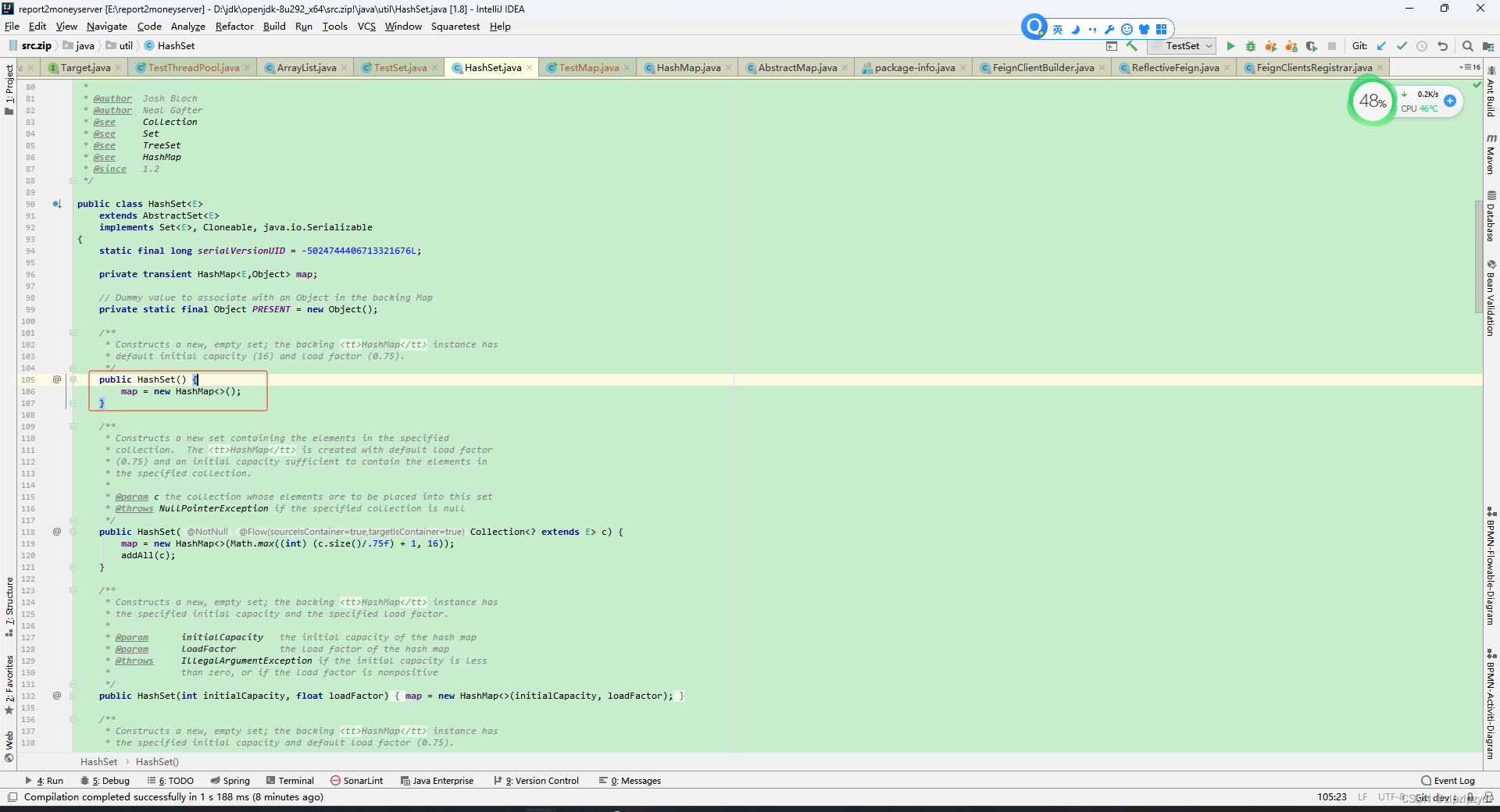
在进行 add() 操作时,调用了?HashMap#put() 进行赋值,其中 key 为 add() 的数据,value 是一个?Object 对象。
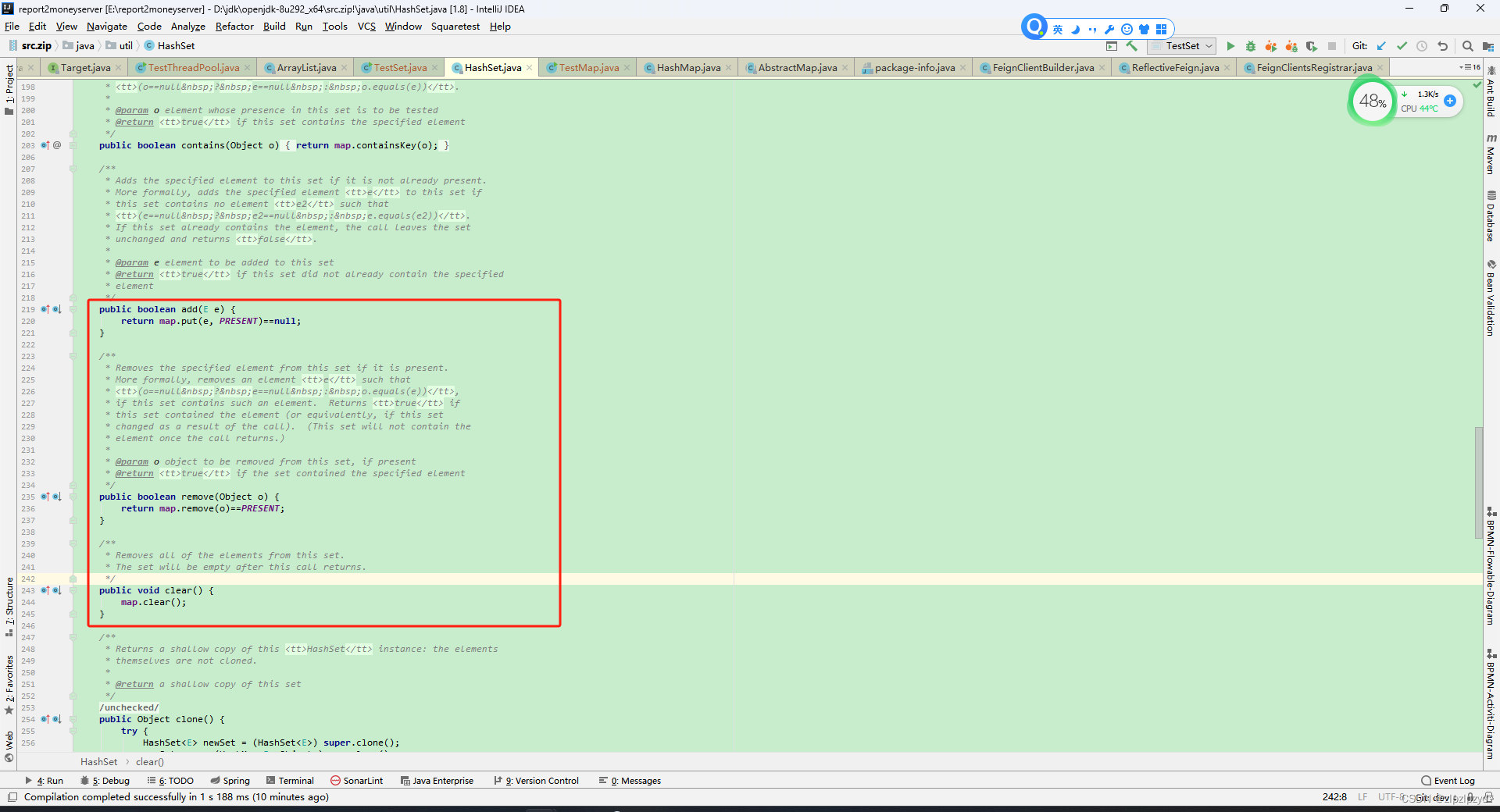
调用 remove() 时调用?HashMap#remove() 与?Object 判断。
可以看到 HashSet 内部使用的?HashMap 来确保了数据的唯一性。其中 HashMap 在 put() 时将 key 进行哈希运算,将得到的哈希值与数组下标进行按位与运算取得对应的数组下标(HashMap 通过数组+链表的方式解决哈希冲突的问题),如果有相同的哈希值数据会进行覆盖(在进行 put() 时会将当前 key 值与链表中的值进行 equals 比对,如果相同进行覆盖),否则添加新节点。
针对?HashSet 的问题,与?ArrayList 类似,只是内部使用了?HashMap 的 keySet 的迭代器,但是这个迭代器只创建一次,ArrayList 每次都创建一个。
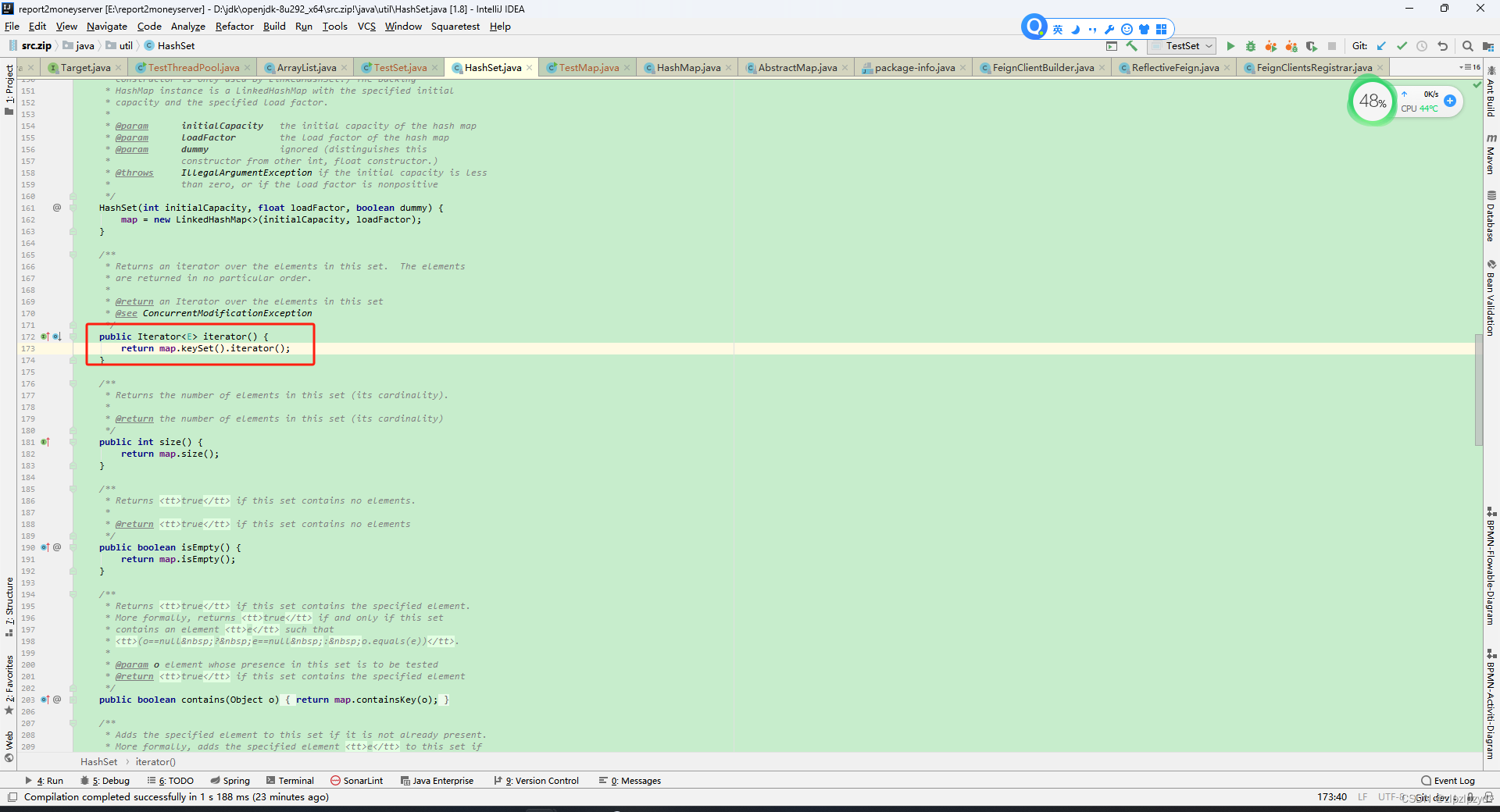
调用?HashMap 的?keySet()
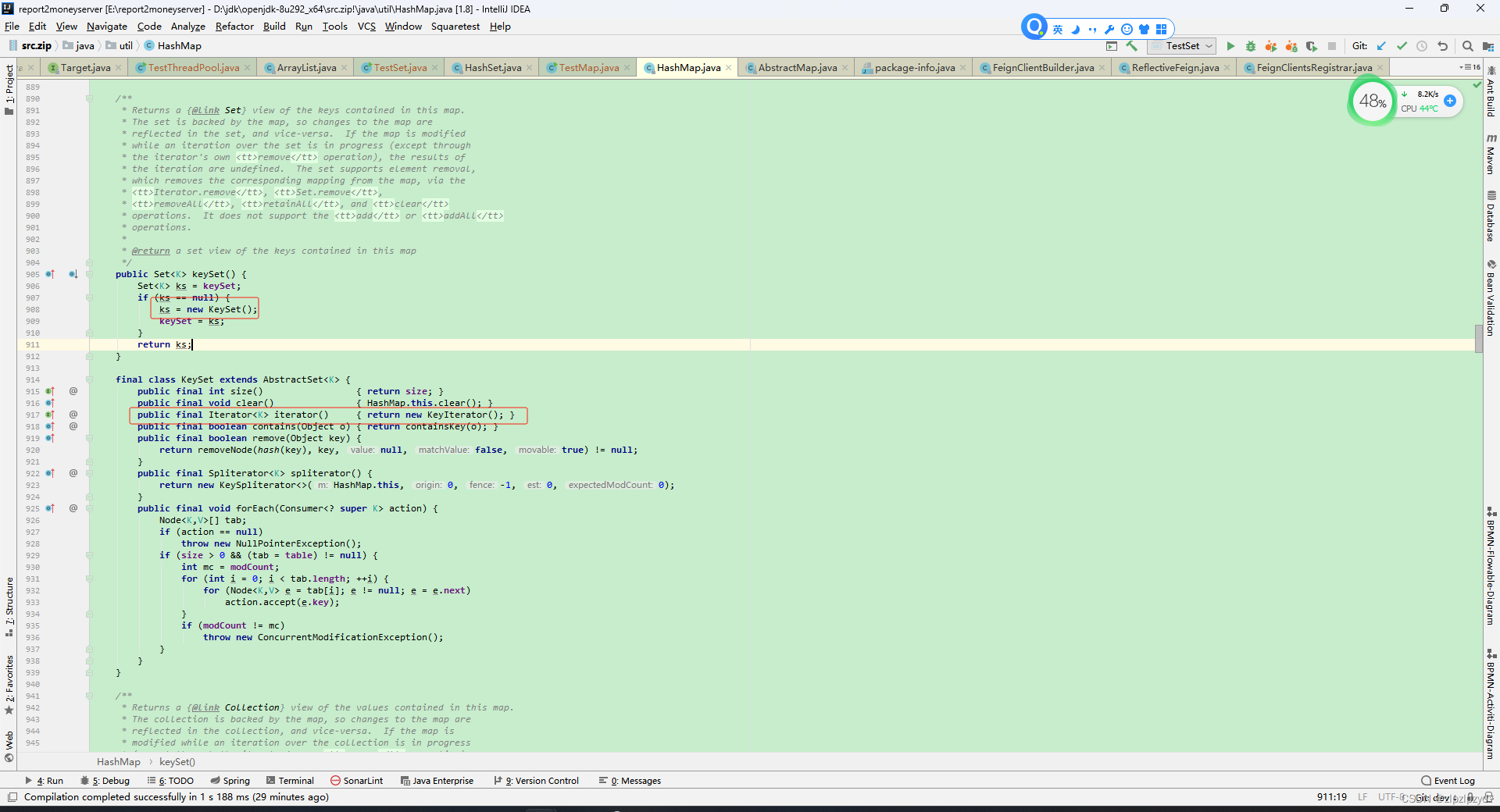
调用?HashMap 内部类?KeyIterator 的 next(),间接调用父类 HashIterator#nextNode()。
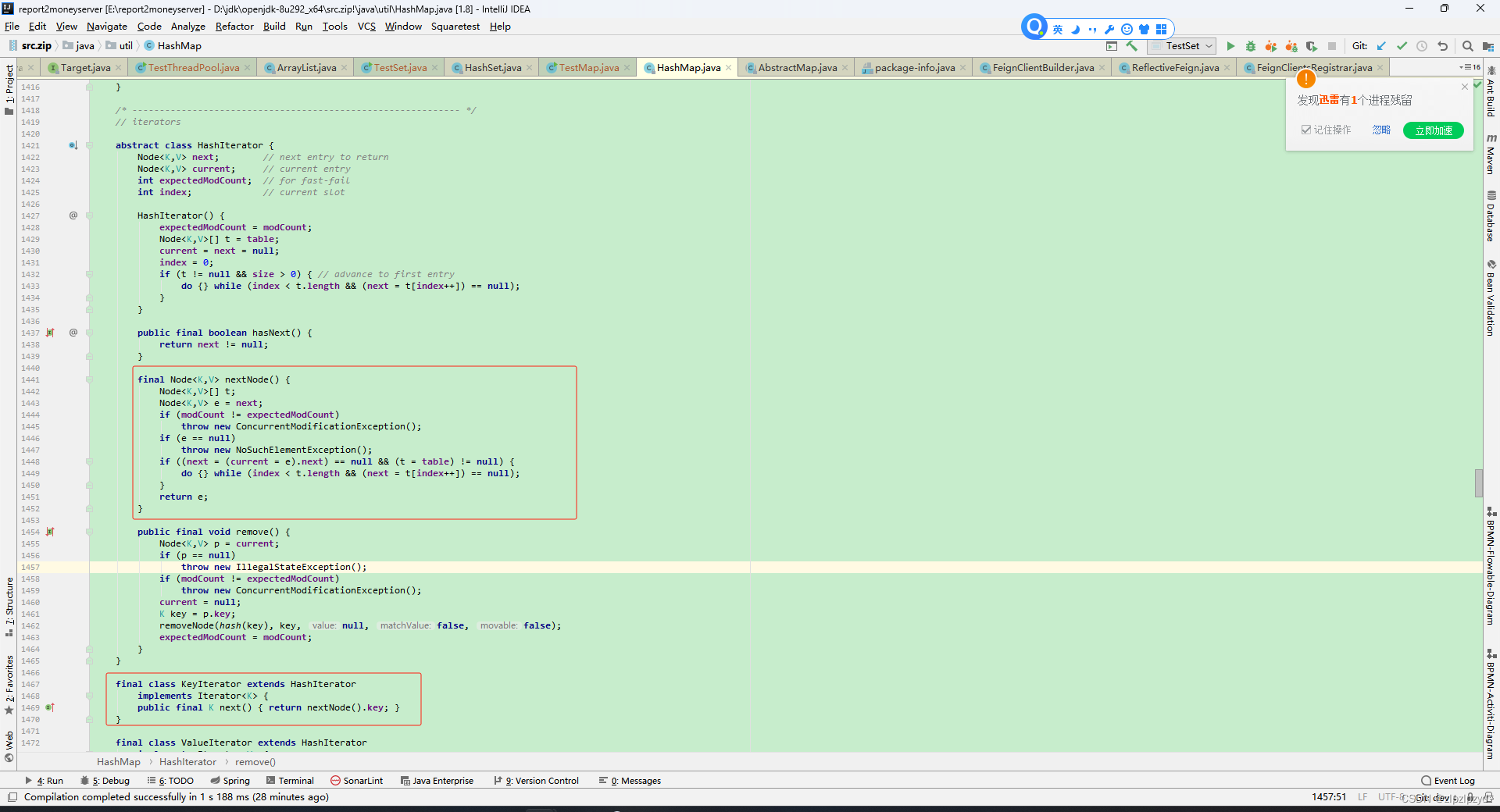
类似于?ArrayList,在创建?KeySet 对象时将?modCount 赋值给?expectedModCount。
在调用?HashSet 的?remove() 最终会调用?HashMap#removeNode(),执行过程中会对?modCount 进行累加。
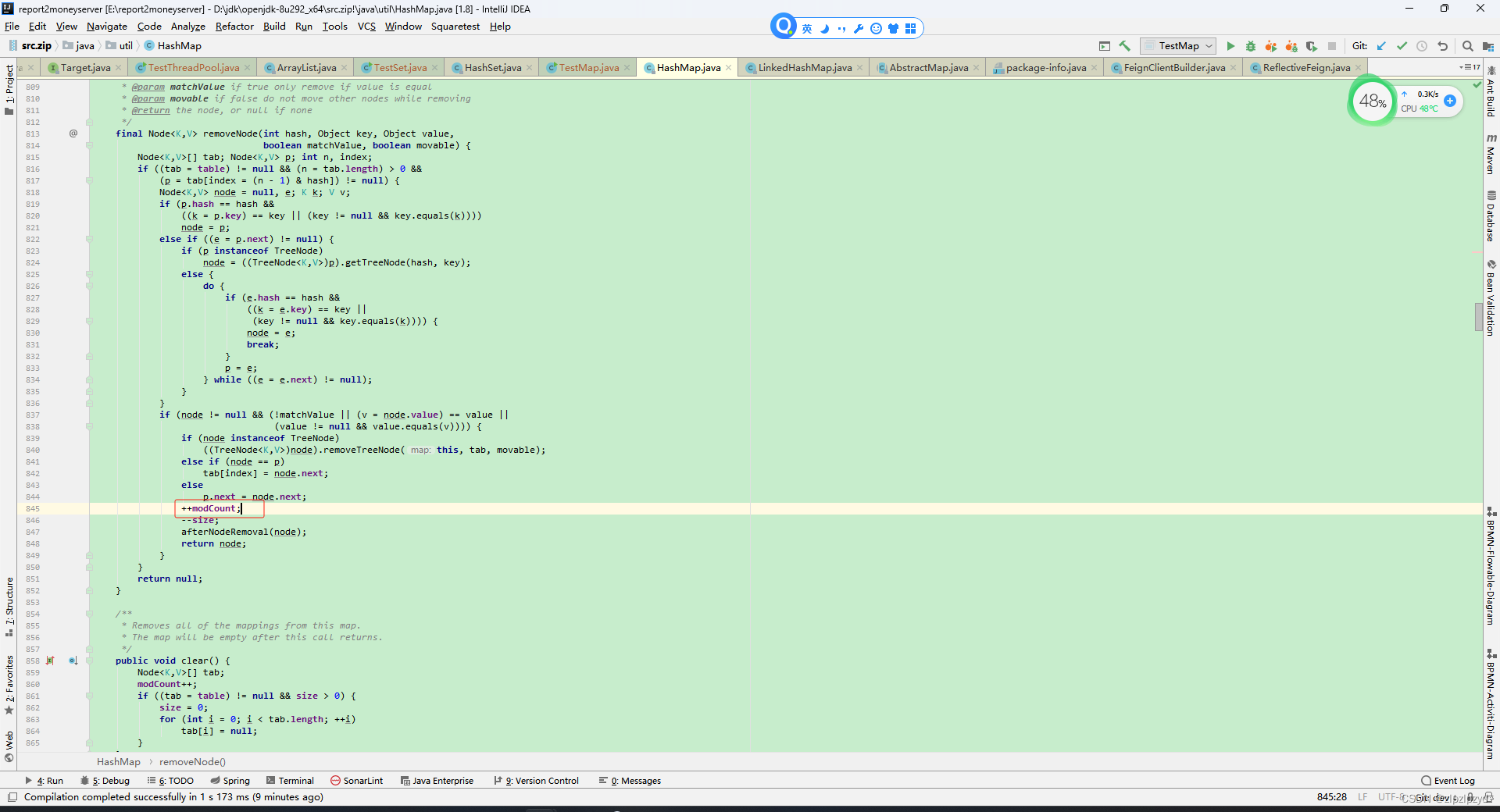
下次进行遍历时在 nextNode() 中进行两个变量值比较,鉴于值不同,所以报错。
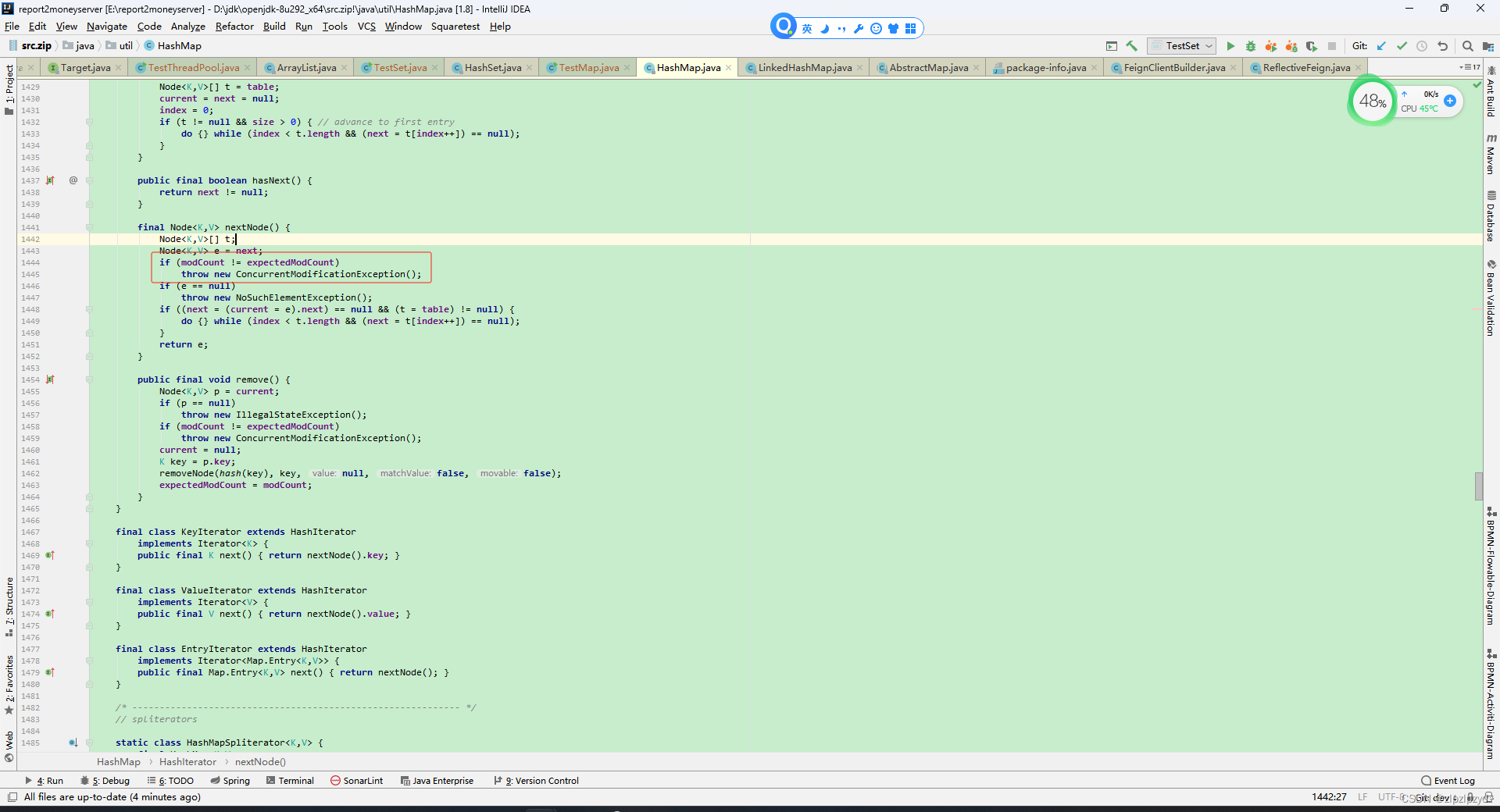
但是在?HashIterator#remove() 中会将?modCount 给?expectedModCount 赋值,所以,不会有值不一致的情况。
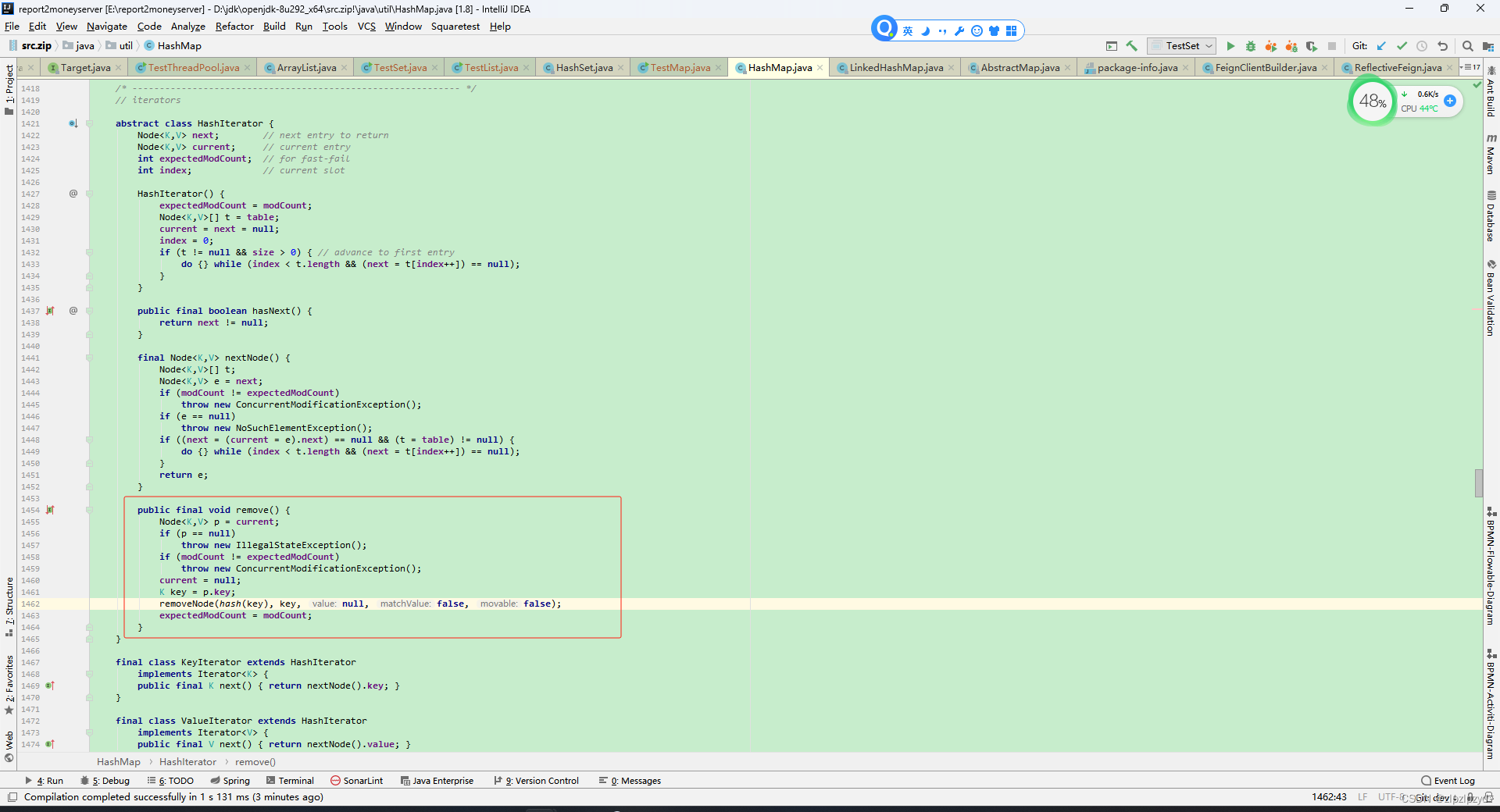
修改后的代码如下
import java.util.HashSet;
import java.util.Iterator;
public class TestSet {
public static void main(String[] args) {
HashSet<Integer> list = new HashSet<>();
list.add(1);
list.add(3);
list.add(1);
/*for (Integer num:list) {
if(num==1){
list.remove(num);
}
}*/
Iterator<Integer> iterator = list.iterator();
while (iterator.hasNext()) {
Integer num = iterator.next();
if(num==1){
iterator.remove();
}
}
}
}
HashMap
没有这个问题,因为在移除元素的逻辑中没有与?modCount 比较的逻辑。
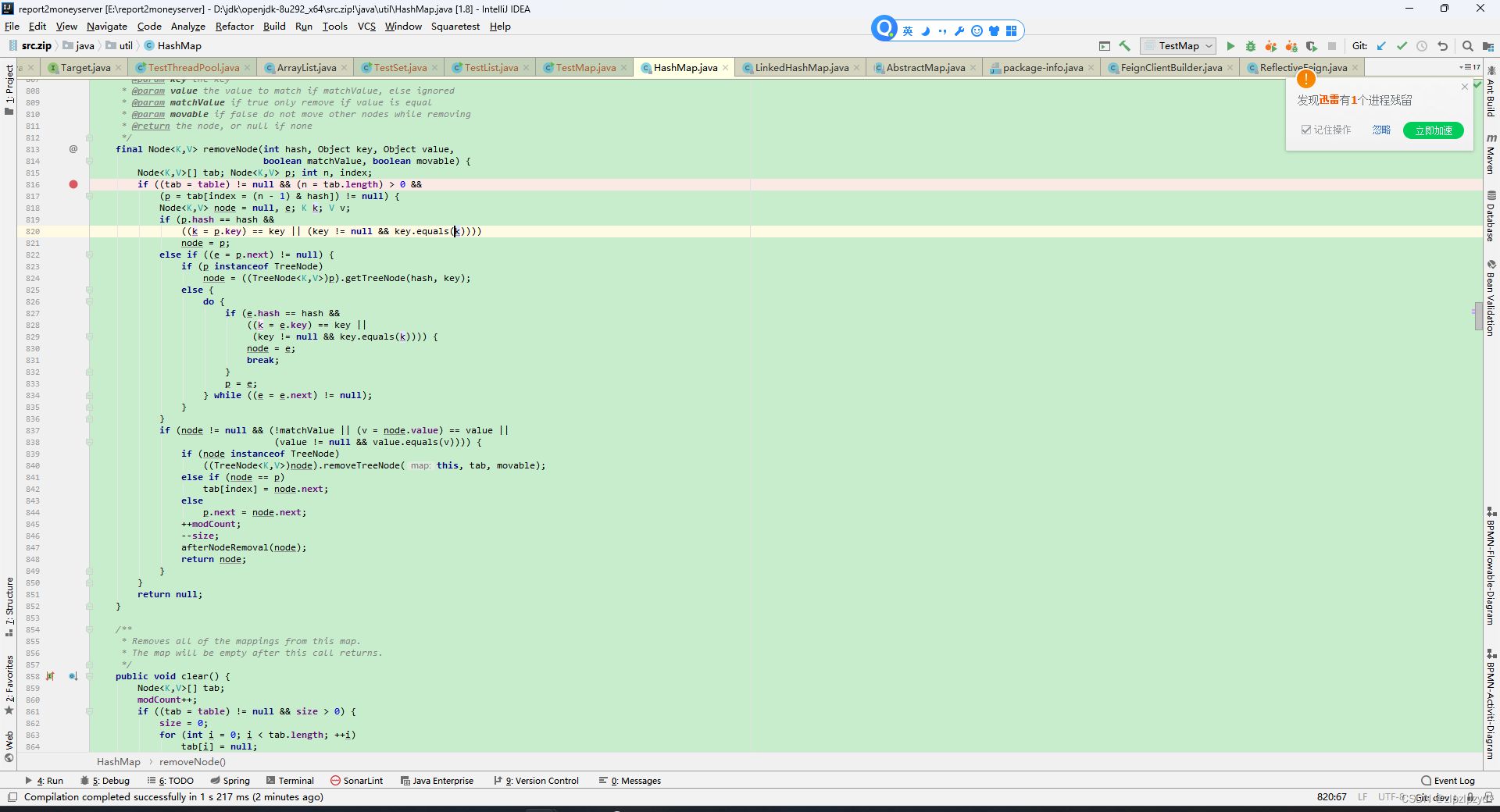
在 jdk 8 中?Collection 新增了?removeIf() 来删除符合要求的元素,通过?Iterator 来实现,可以避开 remove() 调用带来的问题。
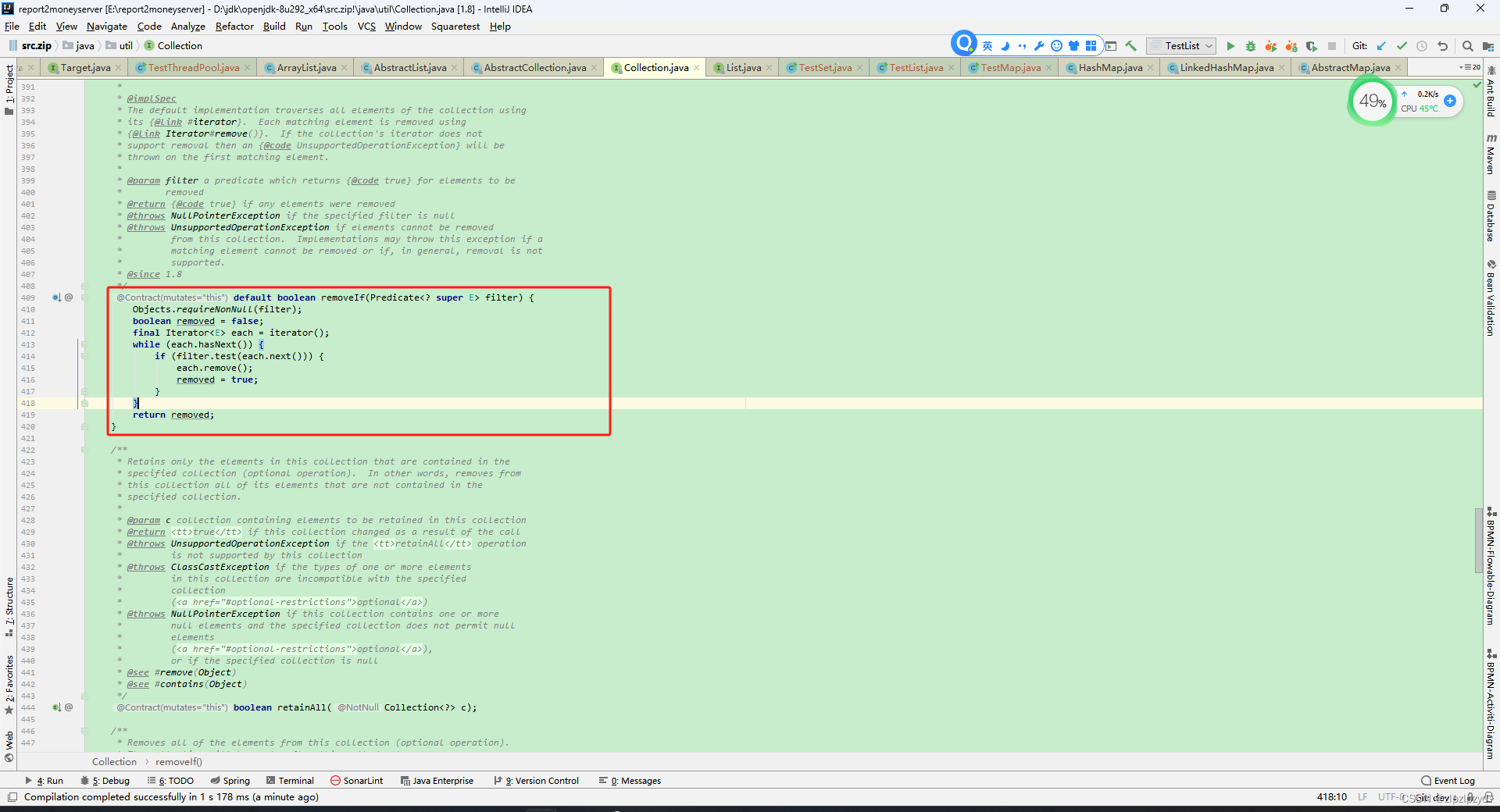
参考链接
https://stackoverflow.com/questions/17377407/what-are-fail-safe-fail-fast-iterators-in-java
https://blog.csdn.net/chenssy/article/details/38151189
https://zhuanlan.zhihu.com/p/37476508
https://blog.csdn.net/weixin_50799082/article/details/131628138
https://blog.csdn.net/lovezhaohaimig/article/details/80494731
本文来自互联网用户投稿,该文观点仅代表作者本人,不代表本站立场。本站仅提供信息存储空间服务,不拥有所有权,不承担相关法律责任。 如若内容造成侵权/违法违规/事实不符,请联系我的编程经验分享网邮箱:chenni525@qq.com进行投诉反馈,一经查实,立即删除!
- Python教程
- 深入理解 MySQL 中的 HAVING 关键字和聚合函数
- Qt之QChar编码(1)
- MyBatis入门基础篇
- 用Python脚本实现FFmpeg批量转换
- 3d效果图的应用场景和3d渲染的发展前景
- 【docker】centos 使用 Nexus Repository 搭建私有仓库
- 《WebKit 技术内幕》之八(2):硬件加速机制
- C++可变参数模板(展开参数包)
- 相机基础概念介绍
- Java 中泛型的基本使用
- 【双层鲸鱼算法求解】基于非合作博弈的居民负荷分层调度模型(Matlab代码实现)
- 第09章_异常处理拓展练习(代码阅读题,简答题,编程题)
- 基于Java+Vue的课外知识学习平台设计与实现
- 【FPGA】Verilog 实践:优先级编码器 | Priority encoder